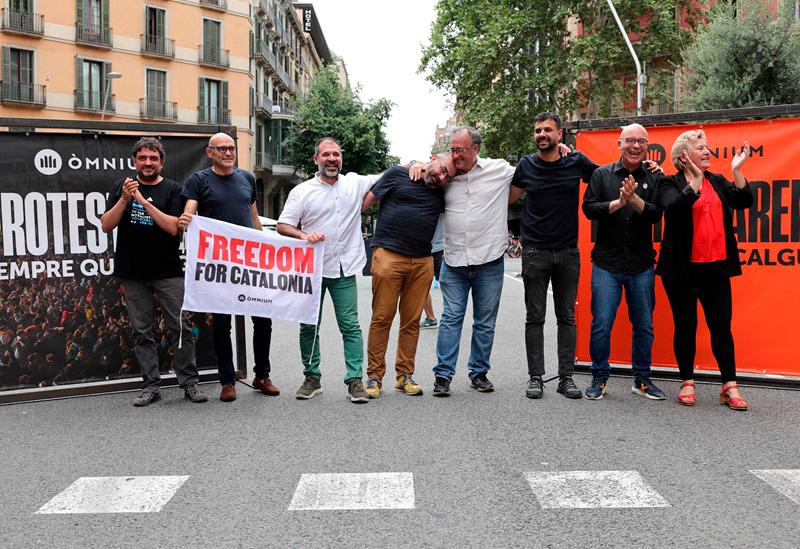BARCELONA: Marta Rovira, one of several Catalan separatist leaders who fled Spain to avoid prosecution over a failed 2017 independence bid, returned home Friday thanks to a new amnesty law.
Rovira, secretary general of Republican Left of Catalonia (ERC), a moderate separatist Catalan party, moved to live in Switzerland in March 2018 and has lived there since.
She returned to Spain’s northeastern Catalonia region, crossing the border with France on foot and raising a victorious fist in the air, images on public television showed.
She was accompanied by several others sought by the authorities, including Ruben Wagensberg, another ERC lawmaker who also benefitted from the amnesty passed by parliament on May 30 in a bid to draw a line under years of efforts to prosecute those involved in the separatist bid.
“I have dreamt of this moment so many times.. Today is an absolute victory and we have to celebrate,“ she told a news conference, vowing to carry on the fight for independence.
“We are here to finish the job we started... We will win our eternal freedom and that of our people.”
Officials say some 400 people are expected to benefit from the amnesty on offences linked to the botched secession bid, which sparked Spain’s worst political crisis in decades.
Rovira had been facing a disobedience charge which was covered by the amnesty, but she was also wanted in connection with a “street terror” probe into a string of mass protests by a group called Democratic Tsunami after the 2019 jailing of 13 independence leaders.
That case -- which also implicated Wagensberg and former Catalan leader Carles Puigdemont -- was closed by the Supreme Court on Tuesday.
Puigdemont -- who led the secession bid and fled Spain for Belgium in 2017 -- has also been hoping to benefit from the amnesty law but his return has been complicated by legal issues.
In a posting on X, he hailed their return.
“With the return of the exiles... an injustice ends,“ he wrote. “We all neet to get to work as soon as possible because there is a lot to be done.”
On July 1, the Supreme Court ruled that the amnesty did not apply to several charges against Puigdemont, notably a misuse of public funds offence.
The Spanish public prosecutor’s office has appealed against the ruling as has Puigdemont himself.
He is also wanted on charges of high treason, another offence that does not fall within the scope of the amnesty law.
Blocking the amnesty for Puigdemont could complicate life of Prime Minister Pedro Sanchez who promoted the measure in exchange for the separatist parties’ parliamentary support to secure a new term in office.









